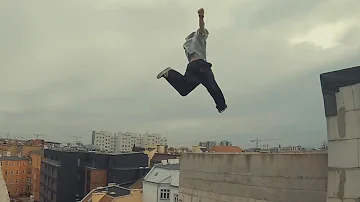Is parkour a sport?
Table des matières
- Is parkour a sport?
- When was parkour a sport?
- Is parkour a popular sport?
- Why is parkour not a sport?
- What is the coolest sport in the world?
- Who popularized parkour?
- Is parkour a sport in the Olympics?
- Where is parkour most popular in the world?
- Are there parkour classes?
- What are parkour moves?
- What is parkour training?
- How to do parkour?

Is parkour a sport?
Parkour is a sport found by Raymond Belle in France and developed by his son David Belle and a group of friends in the late 80s. ... "l'art du déplacement" (Art of the movement), later renamed as Parkour, is a modern city sport.
When was parkour a sport?
The sport originally termed Art du Deplacement, now also often referred to as Parkour or Freerunning, was founded in France in the 1980s by a group of nine young men.
Is parkour a popular sport?
Parkour has surged in popularity during the coronavirus pandemic – with hundreds of children taking part in the “socially distanced” extreme sport every week. Coach John Hall, 31, said he has seen a huge increase in the number of children and adults taking up classes since lockdown.
Why is parkour not a sport?
In the words of Erwan Le Corre, "Competition pushes people to fight against others for the satisfaction of a crowd and/or the benefits of a few business people by changing its mindset. Parkour is unique and cannot be a competitive sport unless it ignores its altruistic core of self-development.
What is the coolest sport in the world?
If you feel this way don't despair, here are five really cool sports that you won't have heard of.
- Sepak takraw. Imagine kung fu mixed with volleyball, mixed with football and you still don't quite get there. ...
- Jai alai. ...
- Chess Boxing. ...
- Calcio Fiorentino. ...
- Disk Golf.
Who popularized parkour?
David Belle The Parkour adventure began in France in the 1990s, in Lisses and Evry, in the outskirts of Paris. David Belle originally developed the Parkour concept according to precepts about the art of movement laid down by his father, who was a Parisian firefighter.
Is parkour a sport in the Olympics?
Already, parkour has been included in the program for the 2022 World Games, which is a good test run for possible future inclusion into the Olympic Games.
Where is parkour most popular in the world?
Let's dig in.
- Spot Real, Lisboa. Portugal is a parkour-friendly country, and Lisboa is a fantastic place to go to when you want to improve your skills and connect with other parkour practitioners. ...
- Freeway Park, Seattle. ...
- Ala Moana Beach, Honolulu. ...
- Central Park, New York. ...
- Ueno Park, Tokyo. ...
- Paris. ...
- Century Gardens, Canada.
Are there parkour classes?
- Parkour in Edinburgh . Access Parkour are the go-to organisation for parkour classes in Edinburgh, providing parkour coaching and training not only in Edinburgh but also further out. Access Parkour run a range of classes ranging from adult, family and youth to U12, active school and youth parkour classes.
What are parkour moves?
- Parkour moves. Parkour is no different from any other style of movement in that it has its own vocabulary of moves. In karate, you do chain kicks, punches, and blocks together to defend against attack. In parkour, you use rolls, vaults, leaps, wall runs, and swings to smoothly make your way over a landscape, urban or otherwise.
What is parkour training?
- Parkour (French: [paʁkuʁ]) is a training discipline using movement that developed from military obstacle course training. Practitioners aim to get from one point to another in a complex environment, without assistive equipment and in the fastest and most efficient way possible.
How to do parkour?
- 1) Start slowly. Do not tackle an obstacle you think you may be able to do, or you may injure yourself. 2) Master the landing. There is a basic landing that you will be incorporating into all basic drops. ... 3) Learn the shoulder roll. This move is one of the most basic but useful tools in your Parkour toolbox. 4) Practice on vaults. These help you clear obstacles easily and with speed. A vault should essentially keep your forward motion going while you are clearing an obstacle. 5) Start training jumps from about 3 feet (0.9 m). You should never jump off anything higher than you yourself can jump. 6) Practice the muscle up. How else are you going to be able to climb over walls? ...













